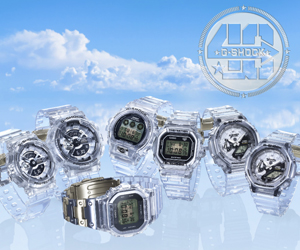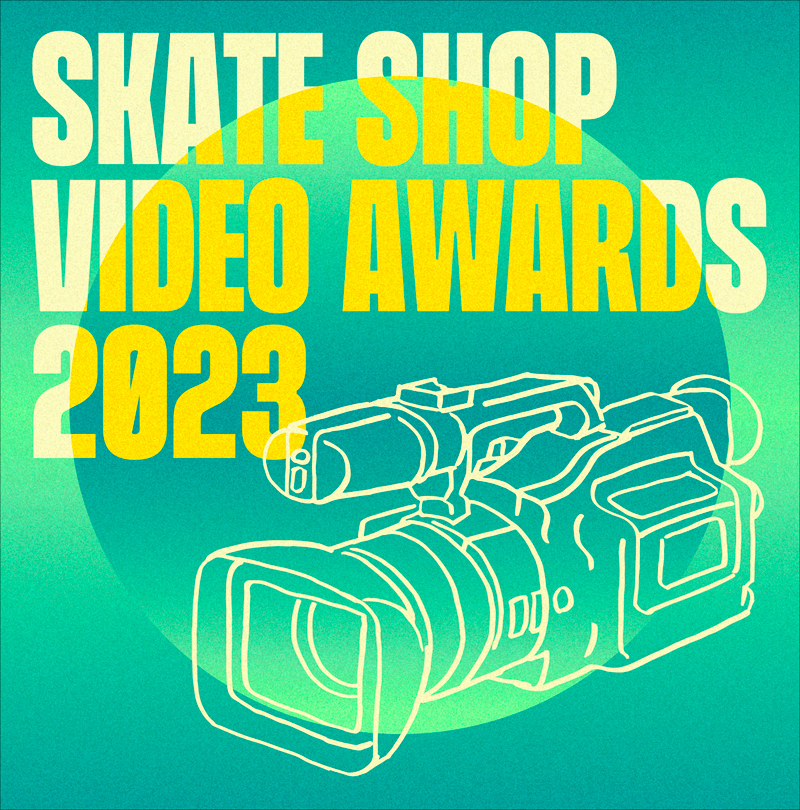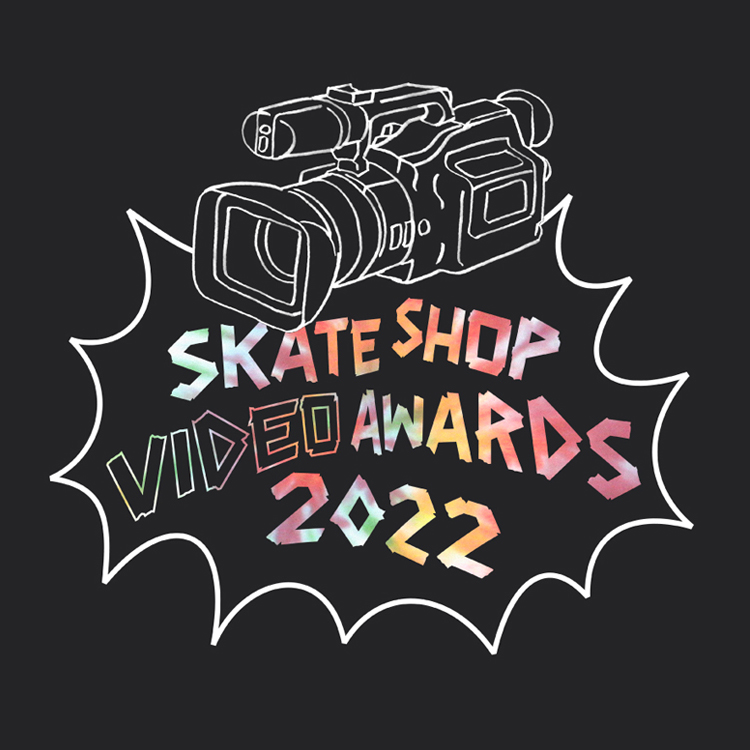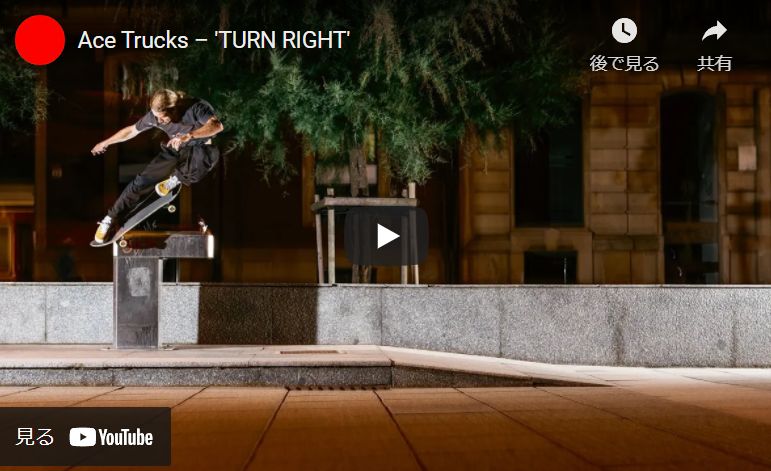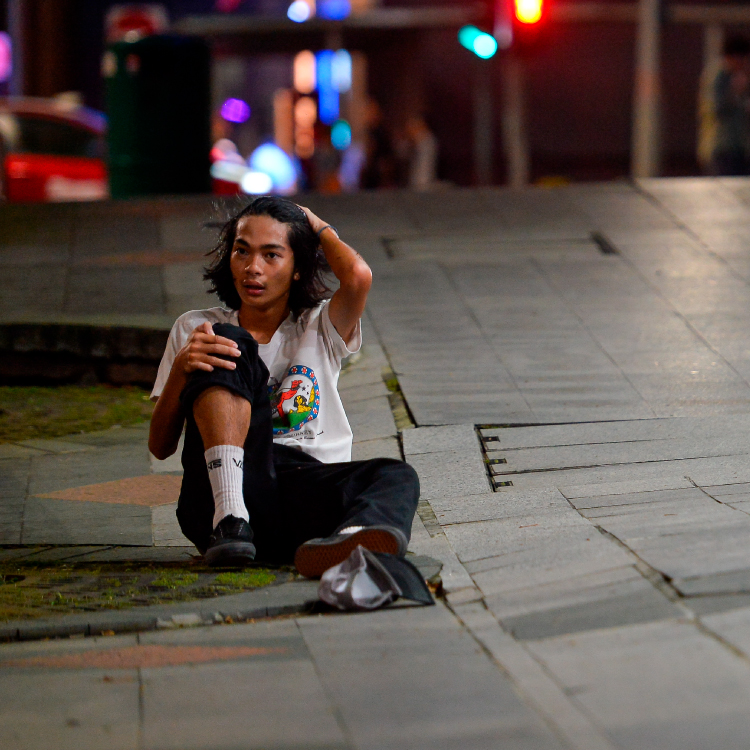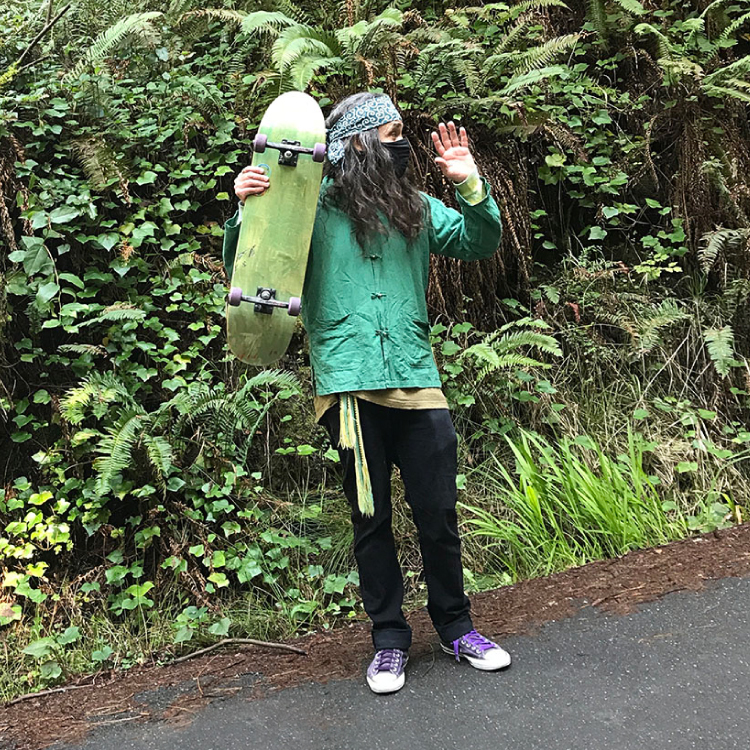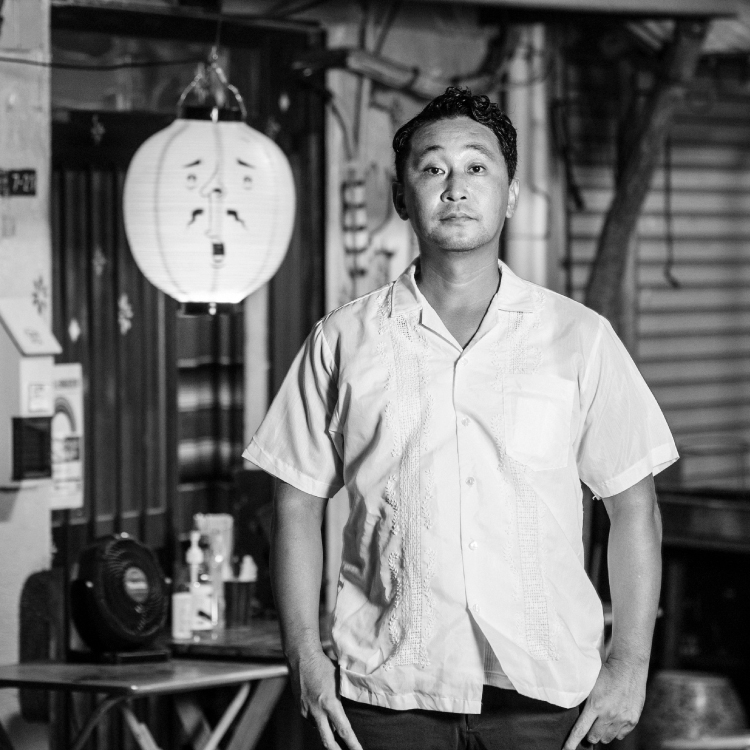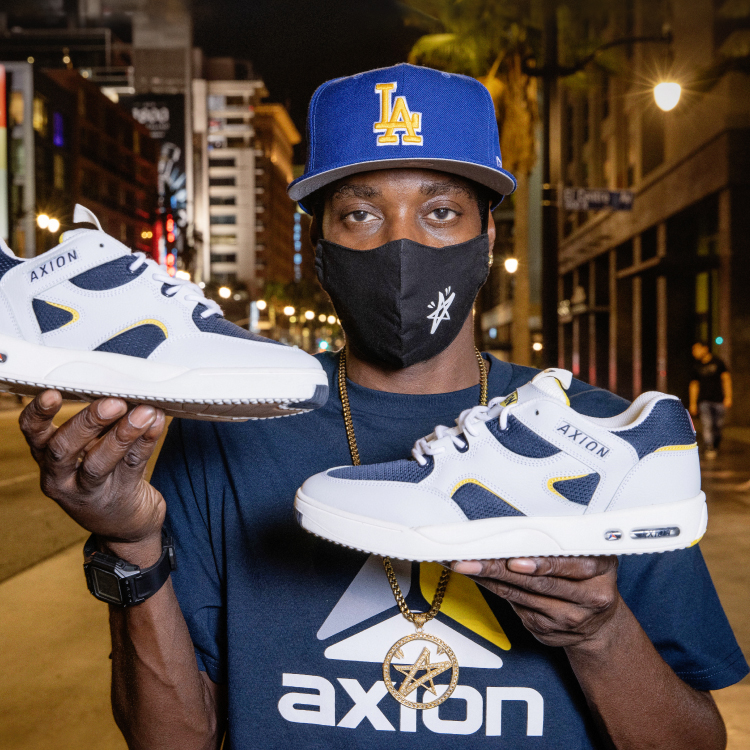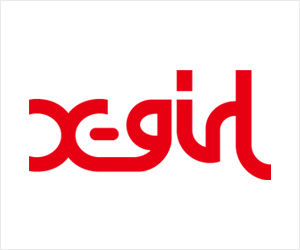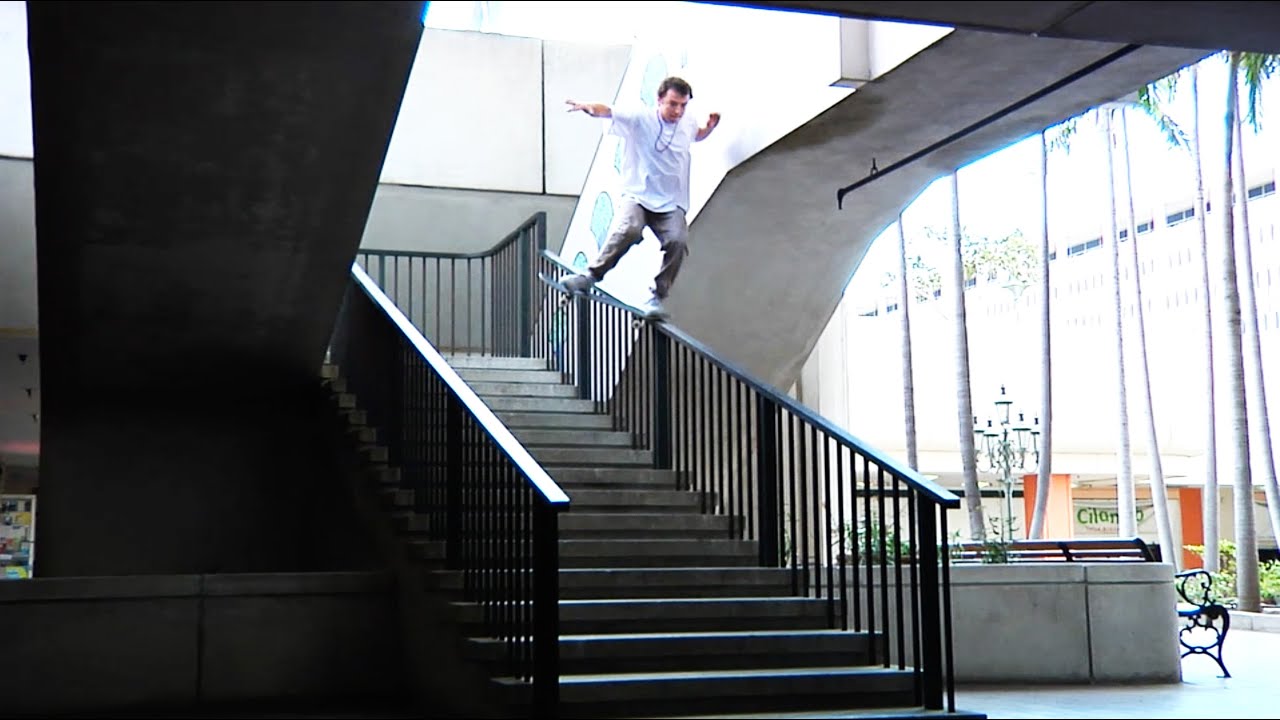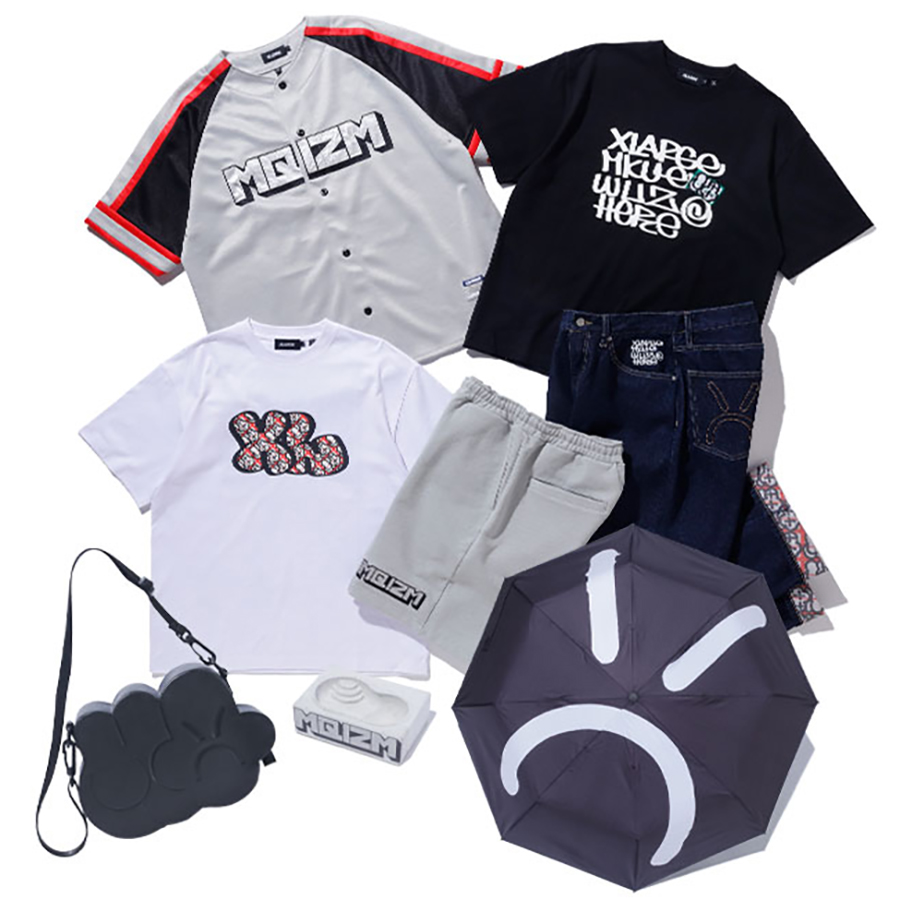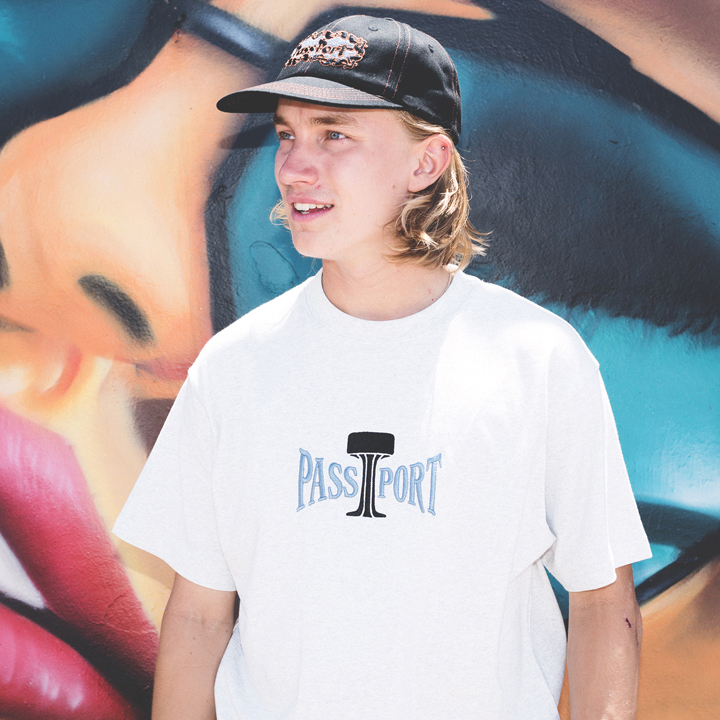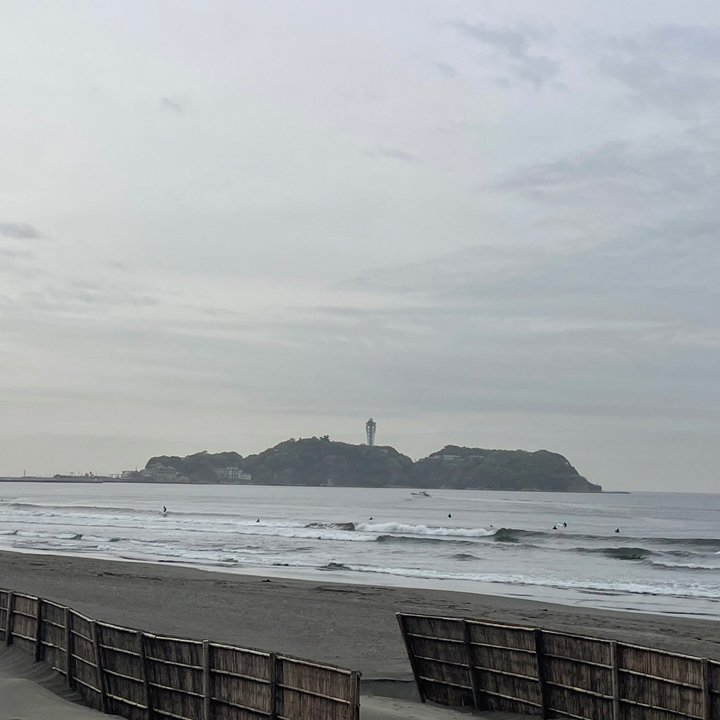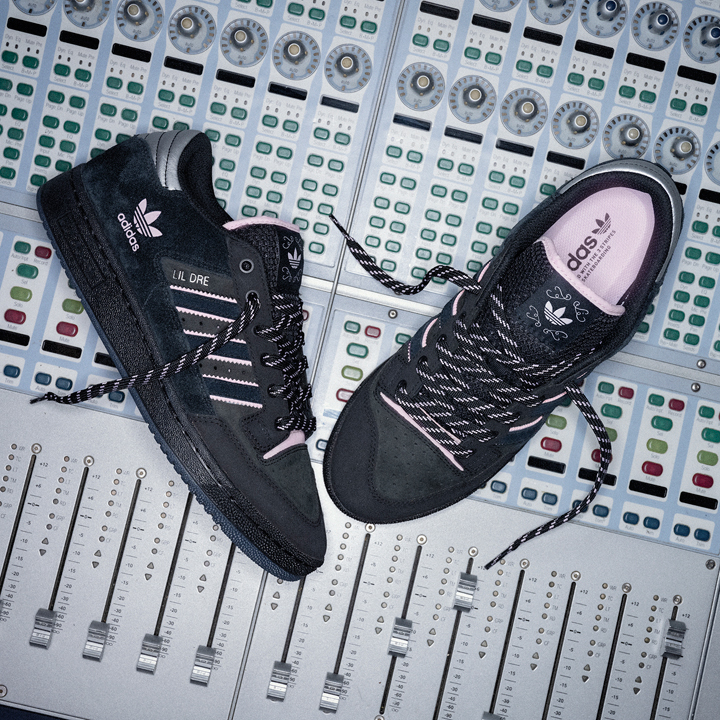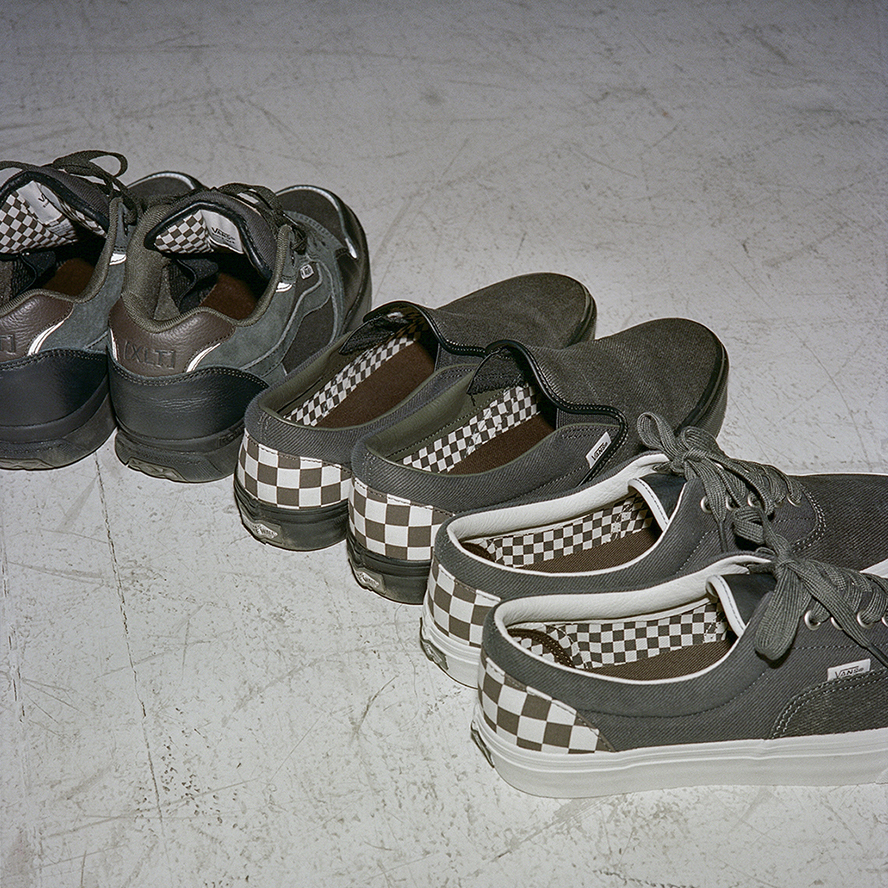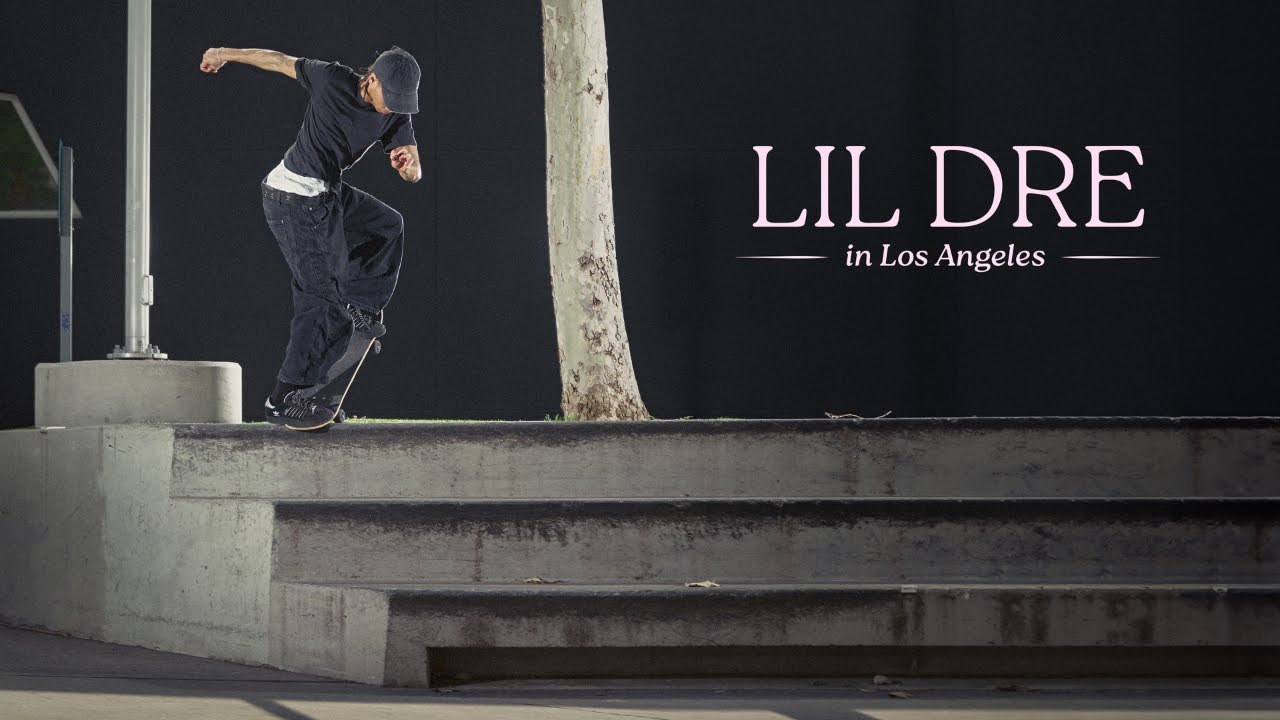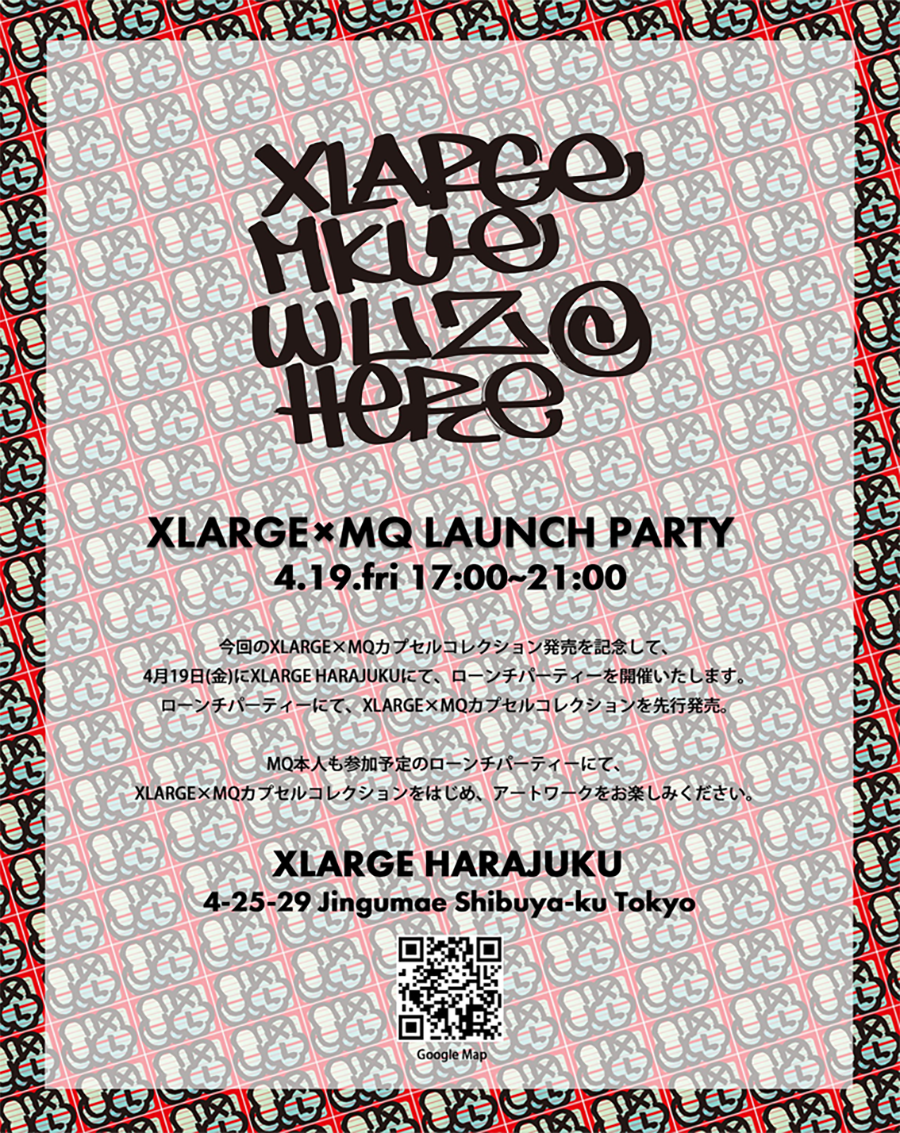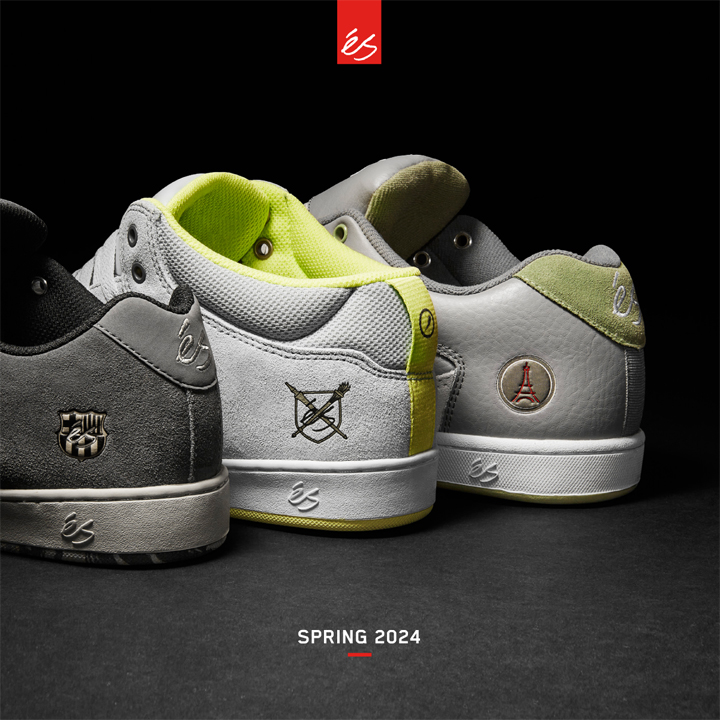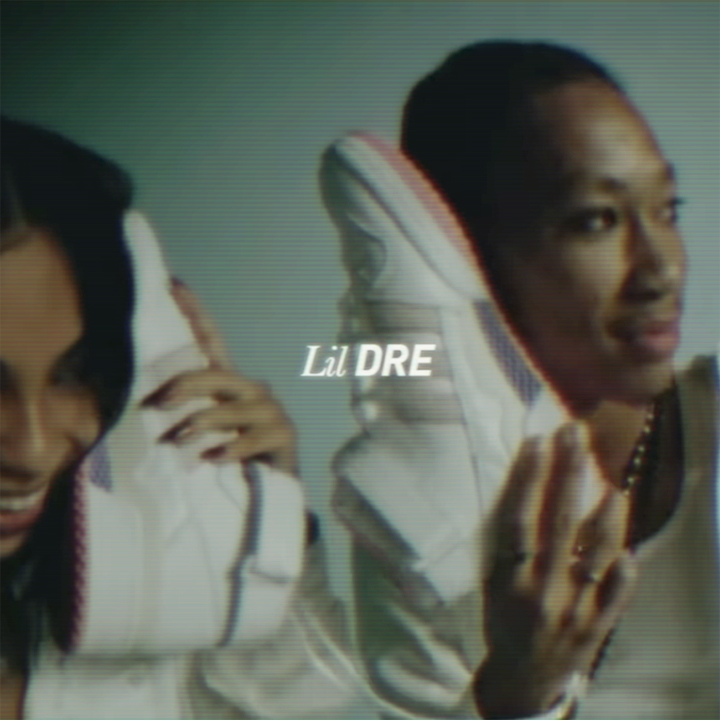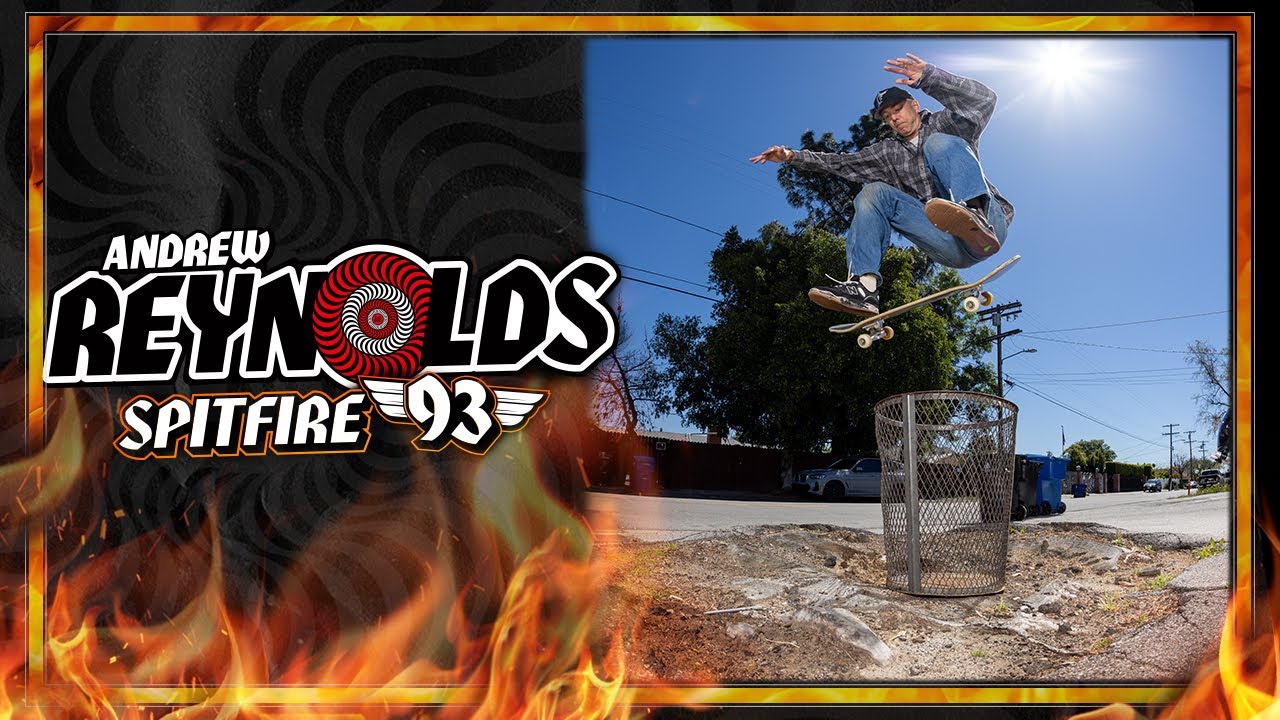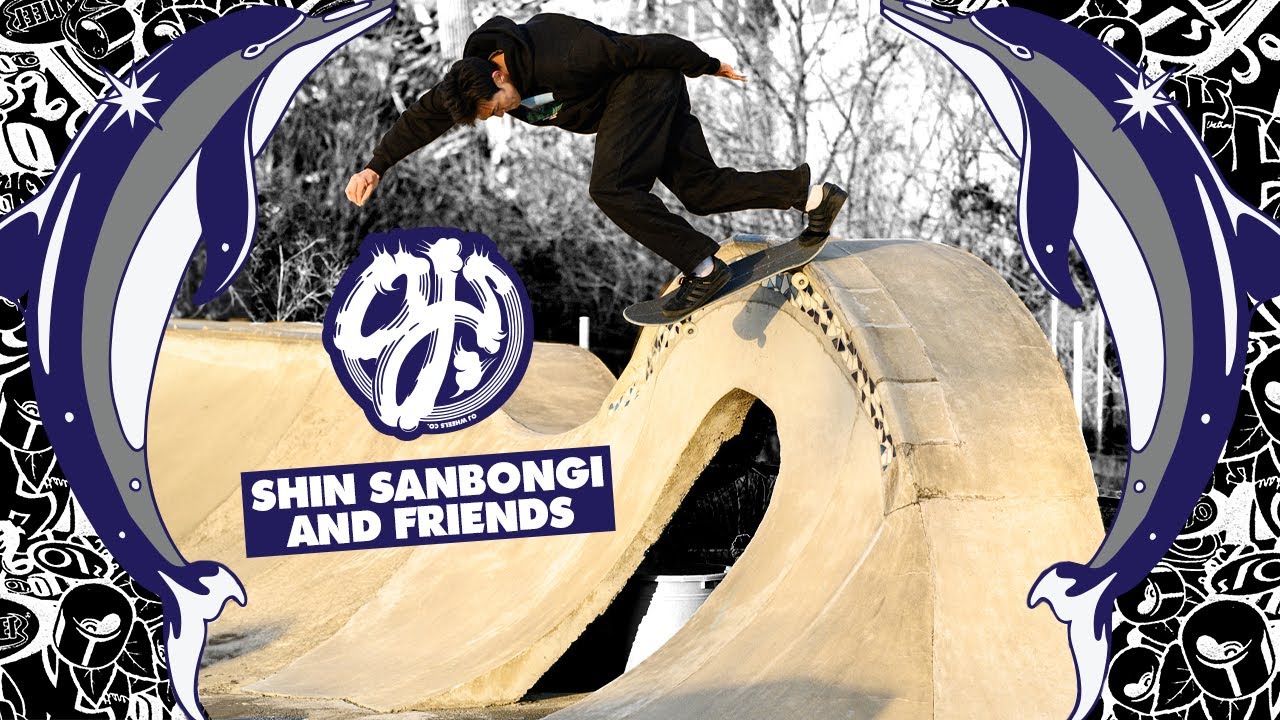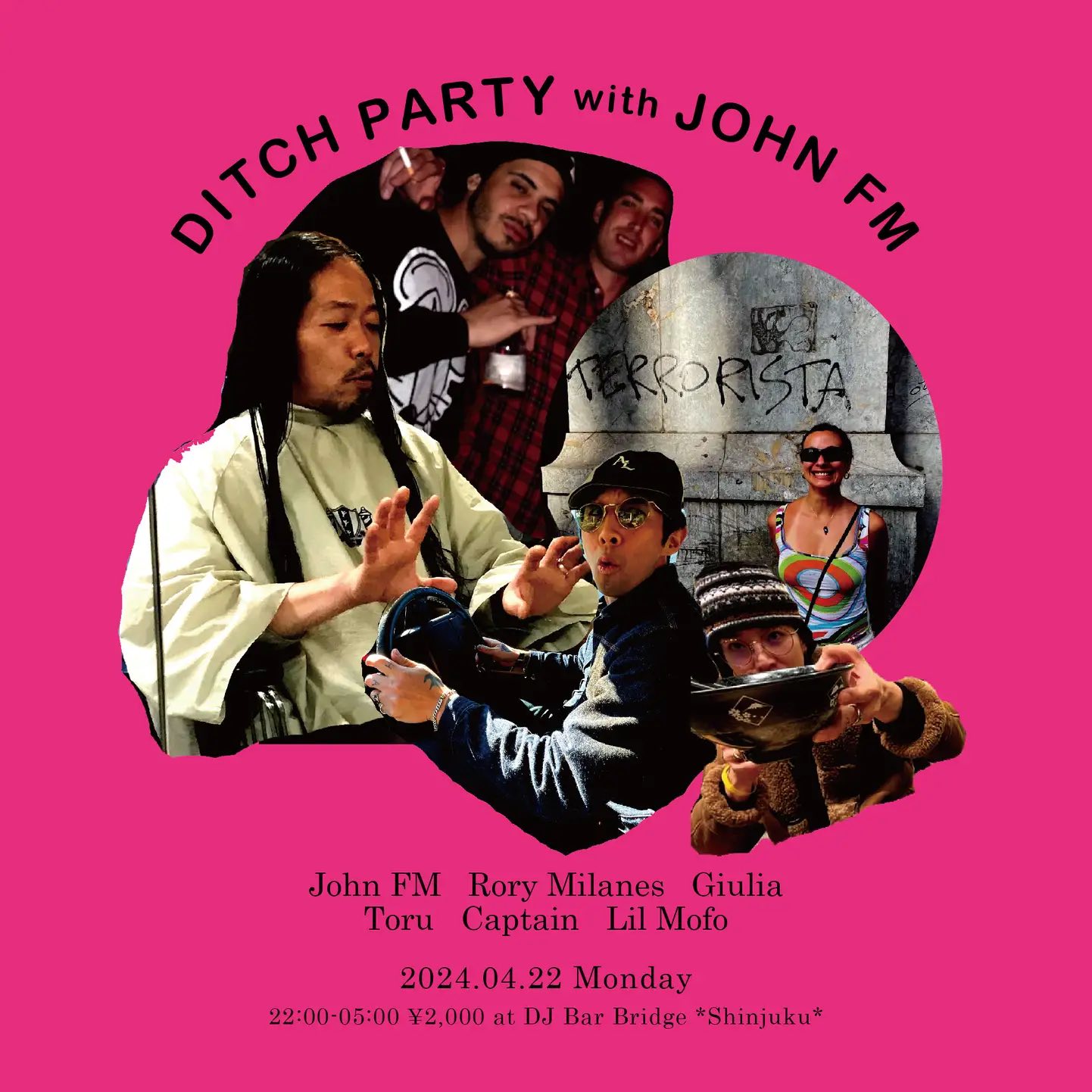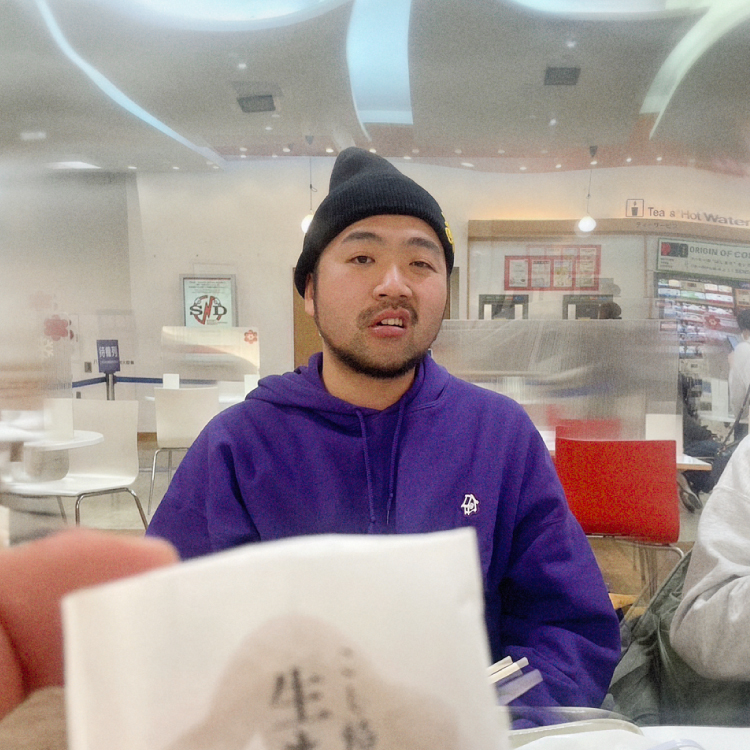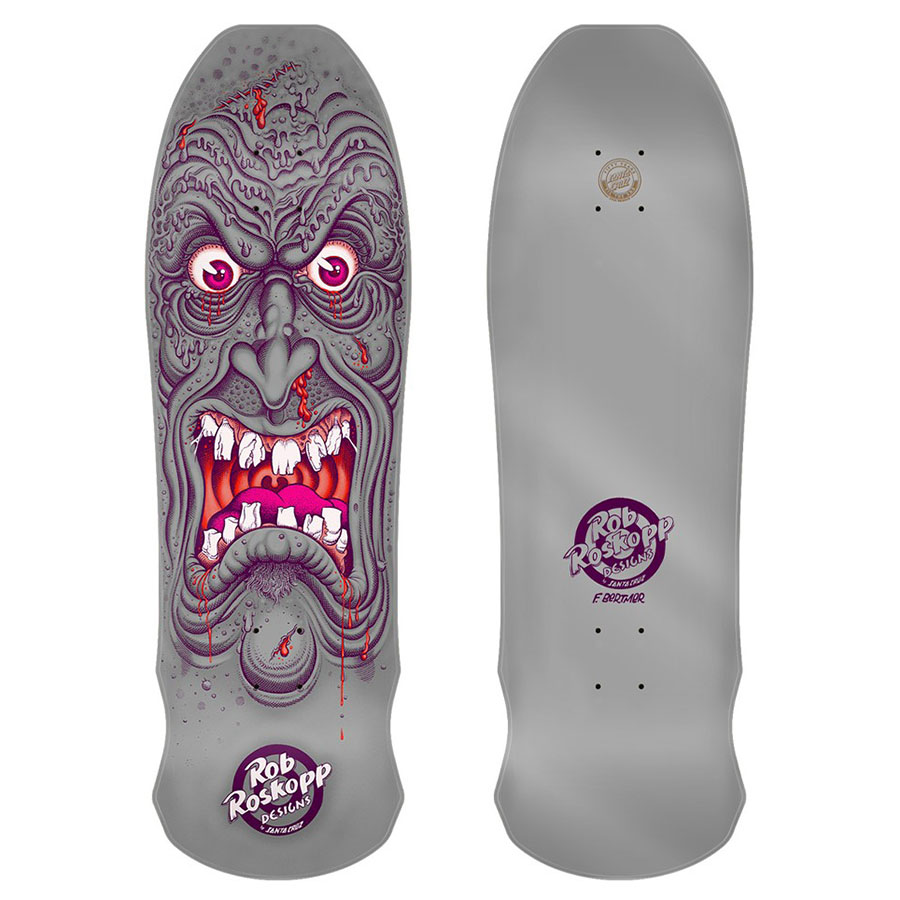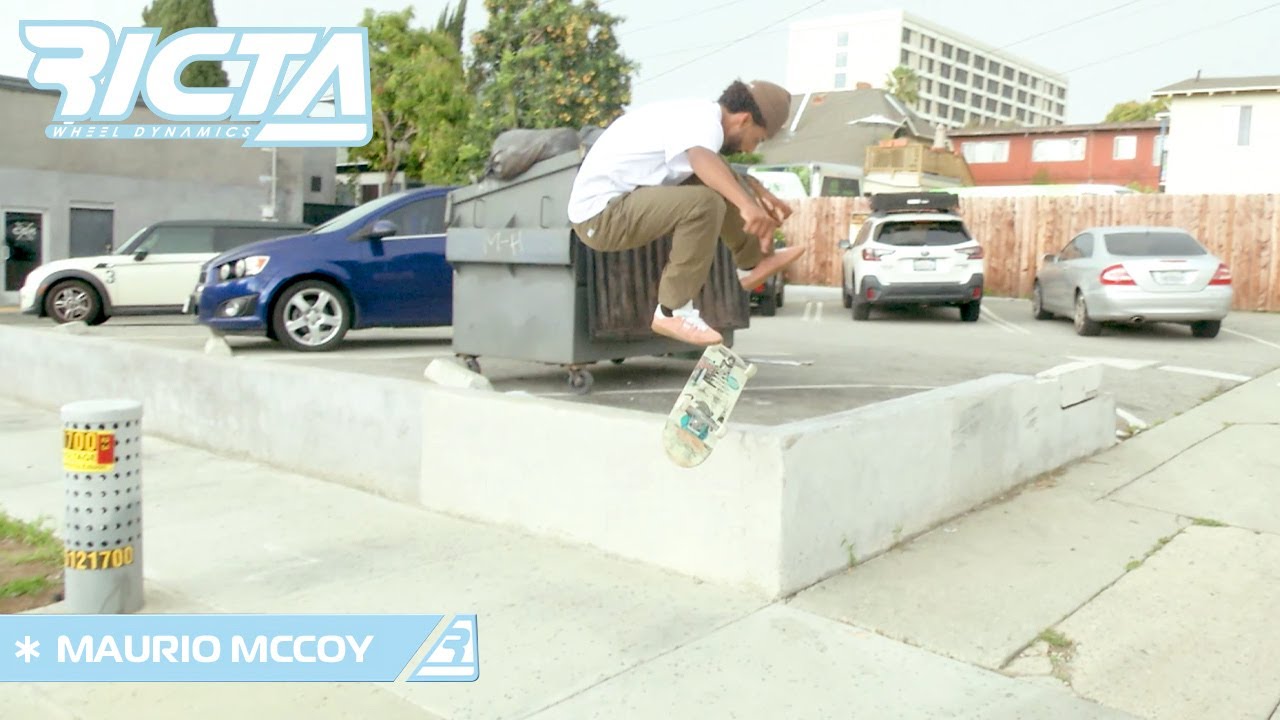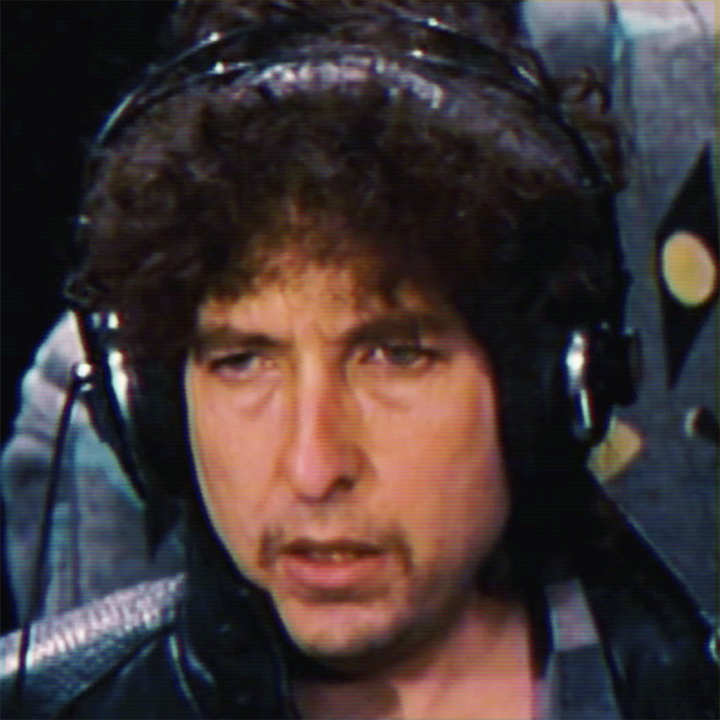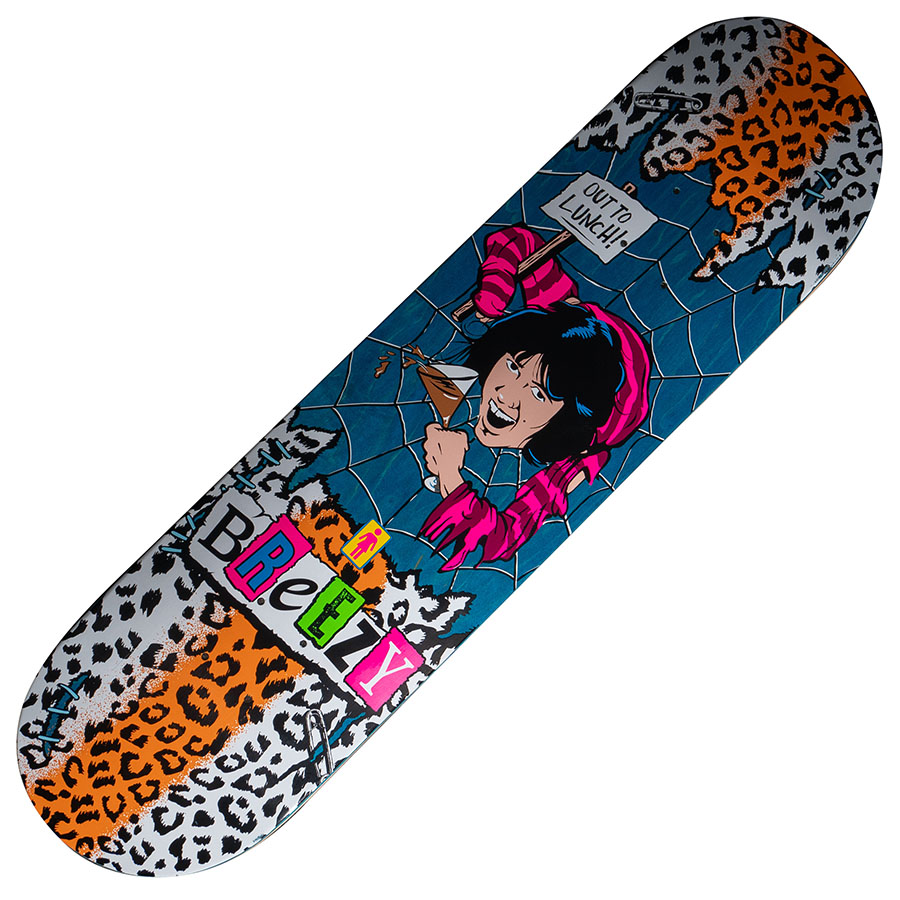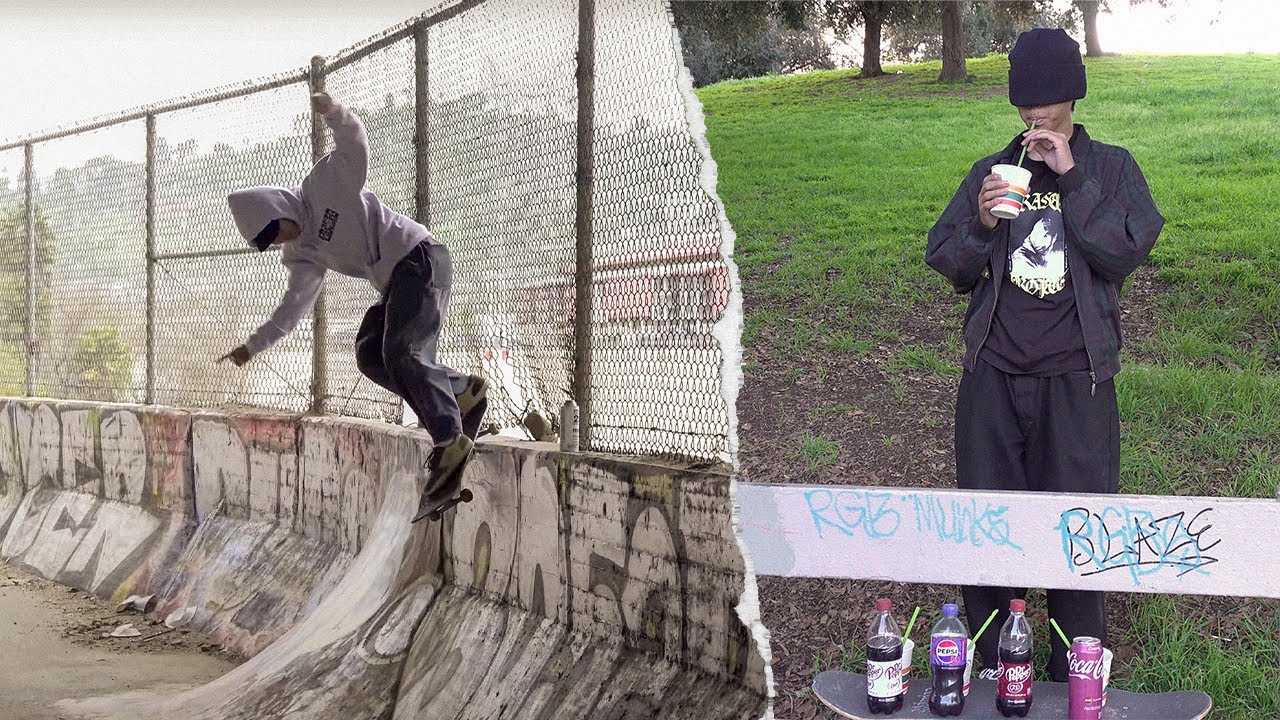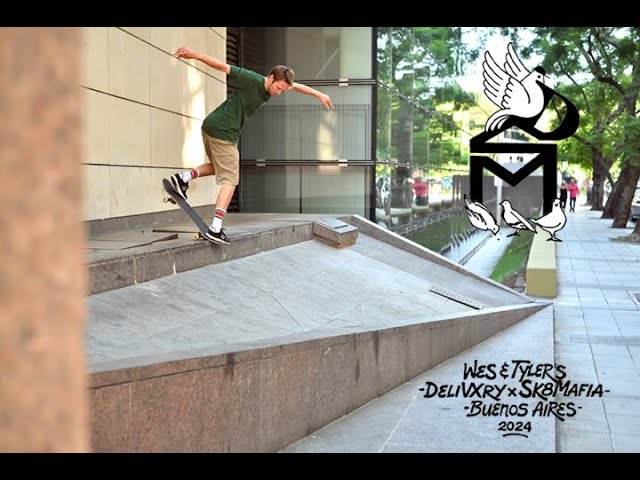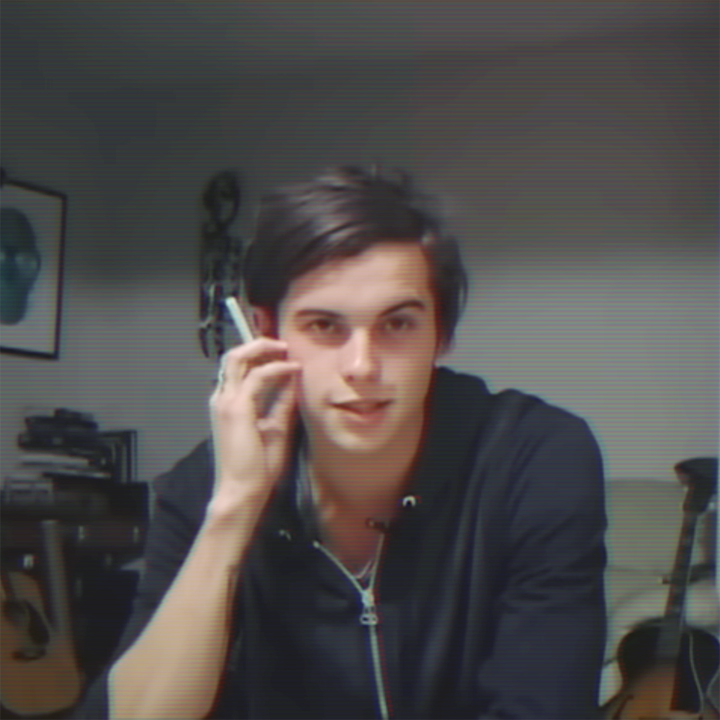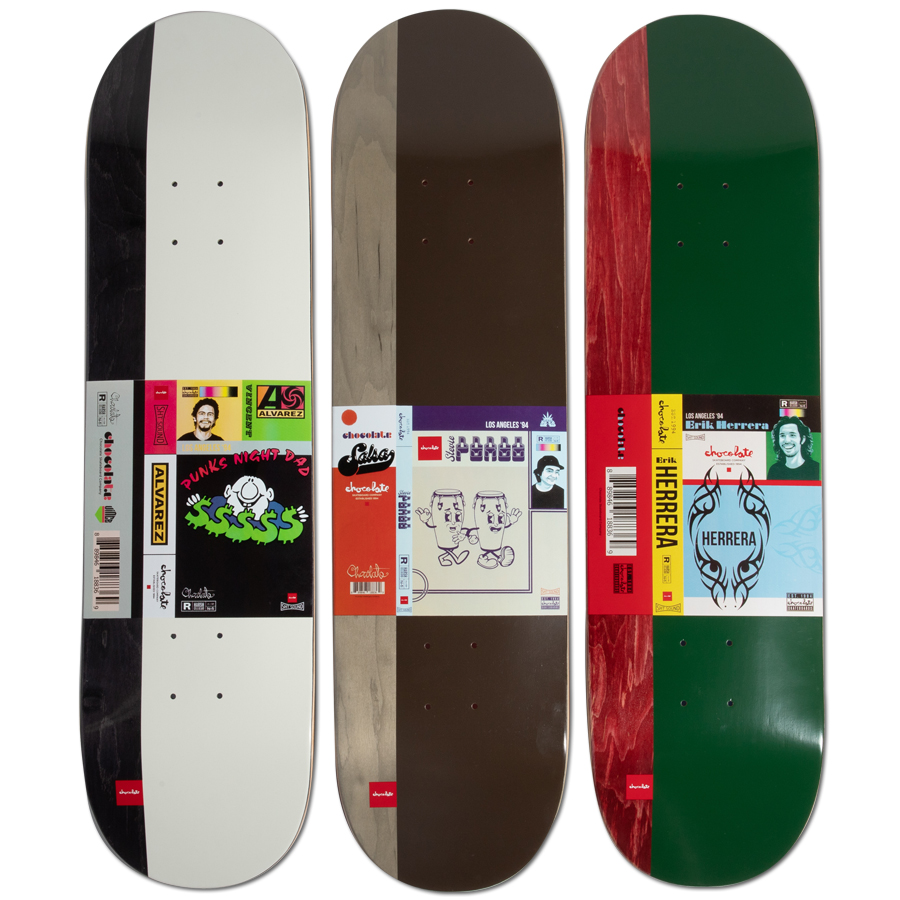Joey Tashay changed the scene with Ace at a time when major truck brands dominated the market. The brand's slogan is "LOOSE TRUCKS SAVE LIVES."
──JOEY TERSHAY (ENGLISH)
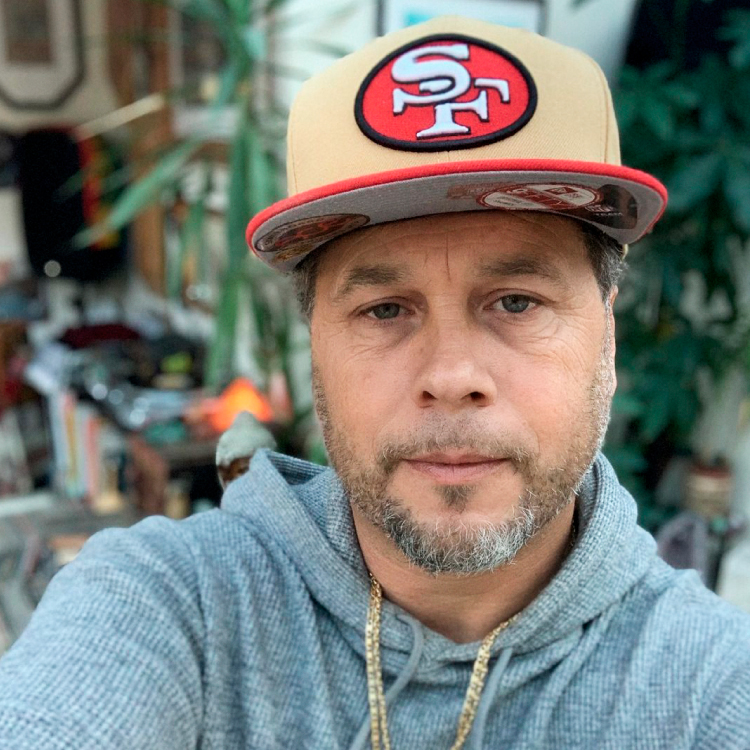
[ JAPANESE / ENGLISH ]
Special thanks_BP Trading
VHSMAG (V): You have your brother Nick and your cousin Raven, and they all skate. Obviously skating runs deep in the family. How did you get into skating in the first place?
Joey Tershay (J): Raven's dad was kind of the first one that gave us our first skateboards, bicycles, surfing, boogie boarding, and driving cars. He was like our older brothers, Raven's uncle and Raven's dad. Raven's dad surfed and skated a little bit. And he also roller skated. Raven's uncle would take us to the skate parks a lot. And I had neighbors that were across the street from us, and they skated and their dad would take us to the skate parks when we were little too. So Raven's dad was our biggest influence.
V: When was that?
J: Late '70s, into the early '80s.
V: From my eyes living in Japan, San Francisco in the '90s was very important. What was it like growing up skating in San Francisco?
J: That's a hard question to answer. There weren't very many skaters in general. So if you skated, we knew you or of you in a sense, from top to bottom, from a little kid to grown dudes. Then there were a couple of skate shops and you lingered around, so you got to know everybody. But it's just where you grew up. You had your friends that you skated with and then you linked with the other little younger and older dudes, and you ended up skating with them at places. And anytime there were spots that popped up... It's a city, so it's easier to get around. It was easy to travel every inch of the city to skate. And it was like a skate park because of all the hills. Kind of like snowboarding, just take a lift up and ride down in a different neighborhood.
V: How did you meet Julien Stranger and John Cardiel?
J: Well, Julien, we met towards the end of high school, just being in the city and skating. So we grew up skating with each other a lot. Cardiel came later. I met him through Greg Carroll because he got on Dogtown and it was in San Francisco at the time. So John got on Venture and Dogtown. It was the early '90s. He was a little bit younger than us, like four or five years younger than we are. So he was like maybe 16, 17, but then he would come to the city and we'd go on little trips up to Sacramento. Just around the bay area. The skate scene was like, we knew everybody and just became friends.
V: When did you start working in the industry? Was Indy the first company that you worked for?
J: No. I worked at Deluxe first, like before Real and all that. Shrewgy, my business partner now, he hired me. It was probably like late '80s, maybe early '90-ish, somewhere around there. And I worked at Deluxe for a while. And then I also worked at Print Time, like printing shirts and stuff. That was all part of Thrasher. I worked at Thrasher shipping. I worked at Ermico where they made the trucks. Off and on, like winter, like holiday times, they had big orders and certain things... I'd come and work. So I was around there for a while, but Deluxe is where I first started and it was right before Real started. Then once Real started, I worked there for a little bit and I moved on to skate and do other stuff. It was four or five years working for other companies before I took the Independent job.
V: What were you doing at Indy? I heard you were the TM.
J: Yeah, I team managed. I did the ads. I came up with the logos and the graphics, making clothes... just all in, whatever. But my office every day was in the foundry in San Francisco, in the Hunters Point in the Naval Shipyard, where they made Thunders, Ventures and Indys. So I was there every day, and then I would go to NHS in Santa Cruz once or twice a week or whatever, when I was on my own trips and stuff.
V: Why did you leave Indy? Did Fausto Vitello's passing have something to do with it?
J: There was a bunch of stuff. Once we did the book for Independent, I don't say I was done but I was there for 13 years doing that. Me and my brother with Diamond, we're doing that. So I just wanted to get more involved. And then with the passing of Fausto and stuff, I had a truck that I wanted to do. And I got the opportunity to do it because of connections and stuff. So I just did it. Made it. Went for it.
V: So, that was 2007?
J: Yeah. I left Indy in 2006. In the summer of 2007 is when I got the truck to market and sold the first one.
V: Indy, Thunder, Venture... These truck companies were super strong. What was it like starting a truck company in that day and time?
J: It was super weird. But I had a huge support that encouraged me to do it. And I already had a truck. It was just a matter of just going and making it. So yeah, it was kind of like a no-brainer.
V: It must have been a big challenge.
J: Oh, it is. I mean, I was just fortunate because I was around for so long doing it. So people already were willing to back me before I even started it. So that kind of helped. I already had a team. It wasn't like I was starting from nothing.
V: How did you build the team? I remember Tom Remillard was one of the first riders?
J: Yeah. Tom was one of the first riders. Raven and Julien Stranger at the beginning. Karma Tsocheff, Brad McClain. There were so many. There's a lot of people who supported in the beginning. Brian Anderson was in the beginning, but then he went back to Independent, but he came back again. Any company starting off, it was hard to get trucks and put them out there. So a lot of people came in the beginning. A lot of people stuck through. It was hard to get trucks out there. It just takes time. And over five, six, seven years, it started to get better and better. But yeah, I was lucky to have the support of shops and distributors and also riders from day one. It's always a struggle. We did it out of the house, into a warehouse, back into a house.
V: What was your vision?
J: I always wanted to make a high performance truck, the best quality, a truck that works straight out the gate that you didn't really have to break it in. Because it's easy to make your trucks tight, just run harder bushings, tighten it down, but to make your trucks loose from the beginning... It's always been difficult. So I figured out how to make them loose from the gate. So I had this design and just went for it. I always want to have the best quality possible, and high performance where it works immediately.
V: What about the design? Is it true that the inspiration came from the early Indy truck?
J: Yeah, I took it from like a bunch of... Like I said, I worked in the foundry. So when I got there, I found a giant box of old trucks, like base plates and hangers and from all the stages of Indy, Thunder, Venture, everything. And also liking the looks of other trucks like Bennett, ACS, Motobilt and the G&S trucks... And the geometries... I just studied and tried everything. Putting different pieces together. And over maybe like five or six years, I figured out a good geometry that worked and then I just finagled from there. So yeah, it was just a natural combination of trial and error with a bunch of different things.
V: What makes Ace different from other truck brands?
J: Well, just the fact that it worked right away and it was a high performance working truck. But now the truck is a hundred times, even a thousand times better quality. The design's the same, like the geometry, the bushing. Everything's the same. All we did was basically improve the quality, like the density of metal. The quality of the way we make the truck now is way superior than all the other trucks. It's stronger. And every hanger is proportionally correct to the geometry and the shape of the wings. AF1s is top quality. And we're always constantly improving and trying to make a better quality truck.
V: I love the fact that you guys are experimenting, like having that rethreading axle nut...
J: We're skaters, so we're like, "what do we need? What do we want? What sucks for us more out there? What always happens?" Like changing your wheels and then you can't get your wheels on at the spot. Can't get your bearings out. You're like, "Fuck, I got to go all the way to a shop." Trying to eliminate things like that... The goal with Ace has always been to have something for everybody. So we'll have everything you'll need. We'll have it.
V: You've done a lot of projects at Ace. What are some of the memorable ones?
J: I live for traveling and skating with my friends on trips. Some are always better than others, but they're all super, super fun. You know what I mean? They're the ones when you don't get hurt and you can skate the whole time. Those are the best one.
V: Obviously the team in Japan is super solid like Shin Sanbongi and Shogo Zama. But besides the team, what do you think is the reason for Ace's success?
J: I like to think people like the truck and the way it works, especially the new ones. I mean, they're undeniably better quality period. But as far as in Japan, I'd known Hiroshi at BP Trading way before, with iPath and at the beginning at Diamond. I've known Hiroshi for a long time and he's always been a good friend and supported us. So from day one, when I mentioned that I wanted to start a truck brand, he was already on board. I had a huge support in Japan from the start. And the brand's been around for over a decade. So I think it's just a natural progression.
V: For the skaters that don't exactly know, could you explain the difference between the classics and the AF1?
J: The only thing different with it is the quality. They're just a thousand times stronger and more durable and more refined. The classics are basically on the same caliber as the strength and quality of all the other trucks. There's no other trucks that have the quality of AF1. We have our own proprietary way to make these trucks.
V: And you have a new truck with the hollow kingpin?
J: Yeah, the lows. We have hollow kingpins. We're going to have some other models with hollow kingpins. We have all kinds of projects. New products, new trips and video, everything. We're just doing our thing, trying to have fun and skate and make some stuff.
V: Do you think there's still room for trucks to evolve?
J: Yeah, of course. One thing I like about my business partners and stuff, they're all willing 100% to experiment. Because with the AF1, we tested it for like two years before it came out. We just want to make quality products. If we feel it's better, we're going to benefit everybody and everything in skateboarding. We just want to do that.
V: You've been in the industry since the '80s and you've seen the evolution of skating. How do you see skating today?
J: It's getting more popular and more accepted around the world. And to me, I'm all for the growth of more skaters, more skateparks, more things to skate, more places to go, more people to link up with. It's just fun. And skating's just going to progress, whether anybody likes it or not. Kids are just going to keep pushing the sport. And just in my lifetime, I've seen it go from carving to what it is today. The more they build stuff to skate, the more they allow people to skate. It's endless. Whatever you can think of can happen. You know already. Like the consistency and the capabilities that people are throwing down. It's awesome to see. I'm a fan of skateboarding just as much as I like doing it. I love watching the progression. It's just awesome.
V: And you're still going on trips and skating.
J: Yeah, as much as the body allows.
V: Okay, let's wrap it up. Last words?
J: Man, just keep on skating and grinding!
Joey Tershay
@joey.tershay
Born in San Francisco. He has been involved in the skate industry since the end of the 80's, and has studied and researched trucks at Independent. He started Ace in 2007, and is still pursuing new possibilities with trucks.
